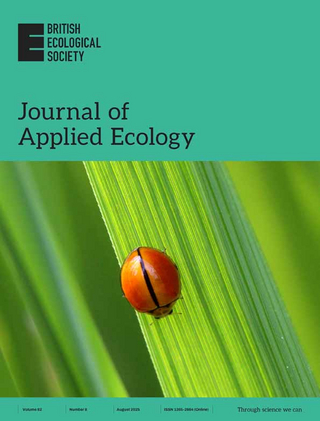
Beyond nature-based solutions: the case for integrated nature-climate action
Folkard-Tapp, Hollie / Idil Boran / Sander Chan / Ines Dombrowsky / Tarra L. Penney / Dawn Bazely / Fidele Ruzigandekwe / Angele Alook / Nathalie PettorelliExternal Publications (2025)
in: Journal of Applied Ecology 62 (10), 2478-2486
DOI: https://doi.org/10.1111/1365-2664.70130
Open access
1. Nature-based Solutions (NbS) have been gaining prominence across the Rio Conventions primarily as a means of addressing climate change with co-benefits for nature and humans. However, they have also faced significant criticism for enabling greenwashing, encouraging market-driven approaches and not addressing the root causes of environmental degradation. Some critics argue that NbS divert attention from urgent transformative actions such as decarbonisation and systemic economic reforms.
2. We present the case for a broader framework, centred around the concept of Integrated Nature-Climate Action (INCA), which extends beyond NbS to drive the structural changes essential for tackling climate change, biodiversity loss and desertification, while delivering positive outcomes such as supporting livelihoods, addressing inequities and upholding the rights of Indigenous Peoples and Local Communities. We provide examples of INCAs with significant, tractable benefits for people and nature, including the removal of environmentally harmful subsidies, land rights recognition and circular economic transitions.
3. We argue that the wide range of actors mobilised by INCAs would increase the finance available to fill the deficit for climate and biodiversity action. While tracking the impact of these actions could be challenging, existing United Nations (UN) initiatives could provide models for ensuring the integrity of INCA. A clear definition and set of standards must also be agreed upon to avoid the pitfalls that plague NbS. Careful oversight from stakeholders and rightsholders is vital to ensure legitimacy and that the uptake of INCA does not favour one outcome over others.
4. Policy implications: Moving beyond NbS to pursue an inclusive INCA concept can help address the systemic drivers of the global polycrisis. With synergies between the Rio Conventions expected to be a key focus of the upcoming Conference of the Parties for the UN Framework Convention on Climate Change (COP30), there is a clear policy window to broaden the scope of interventions relevant to all three conventions and engage a more diverse array of actors to support enhanced coordination. This is essential for transitioning towards a regenerative economic system that works for people and the planet.

